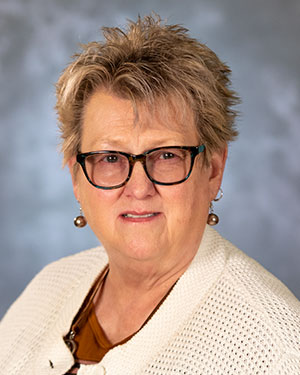Program Philosophy
The practical nursing faculty believes that good health is essential to achieving full happiness and human potential and further believes:
- Every individual is unique, recognizing that a person is more than and different from a sum of integrated systems.
- Health is a dynamic process of being or becoming an integrated person striving for maximal functioning within society.
- The environment in which individuals exist includes the stimuli surrounding and affecting the adaptation, development and behavior of the individuals and how they relate to others.
- Nursing is an art and a science which incorporates principles from the biological, physical and behavioral sciences. The nurse cooperates with members of the health care team to assess health needs and assist the client to perform those activities which contribute to health. The goal of nursing is to assist the client in attaining, maintaining and restoring health throughout the life cycle. The practical nurse contributes to this goal through the use of the nursing process.
- Practical nursing is an integral component of the nursing profession. The practical nurse practices as a responsible member of the health care team under the guidance of a registered nurse or licensed physician.
- Education is a life-long process encompassing knowledge, skills, attitudes and judgment.
- Learning is facilitated by the active effort of the learner and is influenced by the individual differences in ability and background of its participants. The process of learning is fostered by an open, receptive and democratic environment which nurtures the individual's efforts and motivation to learn. All learning should bring individuals closer to self-actualization.
- Practical nursing education is a planned program of competency-based instruction preparing the student for the beginning role as a practical nurse in structured health care settings. This is achieved through clinical practice correlated with basic nursing theory and introductory content from the biological and behavioral sciences. Practical nursing educators recognize the need for continuous evaluation and revision of the curriculum to meet the changing needs of society.
- Nursing educators accept the responsibility for providing a knowledge base and opportunities for correlated practice through an organized curriculum which encourages continuing education.
Program Objectives
The graduate of the program will:
- Utilize the nursing process to contribute to the development of an individualized plan of care with respect to the client’s stage of development.
- Perform basic nursing skills demonstrating responsibility for safe nursing practice within legal and ethical limits.
- Contribute to the community as a responsible member of the health care team.
- Accept responsibility for personal and professional growth through continuing education.
- Consider elements that impact client care (environment, culture, family, biopsychosocial, and spiritual) across the life span.
- Integrate professional communication skills (verbal, non-verbal, written, and electronic) to contribute to favorable outcomes.
- Upon completion of the PN certificate program, the graduate will pass the NCLEX-PN on the initial attempt.
